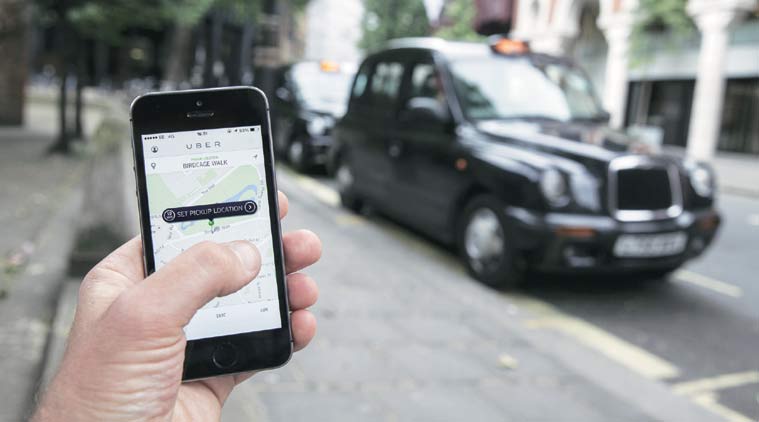App-based cabs: Transport ministry, states conclude talks; regulatory norms likely in June
The ministry has made provisions in the Motor Vehicles Act to register and operate app-based taxi hailing services within jurisdiction of states so that competition is allowed to foster.
 Aggregators would need to maintain records of the engine numbers and insurance policy of the vehicles.
Aggregators would need to maintain records of the engine numbers and insurance policy of the vehicles.
In what is likely to bring to an end the long-standing debate on regulation of taxi-hailing services like Uber, Ola and TaxiForSure, the Ministry of Road Transport & Highways (MoRTH) has concluded extensive consultation with states and will issue an advisory detailing guidelines for their operation in the next two weeks.
Sources in the ministry informed they have received written observations from the Delhi Government on the proposed guidelines on Thursday. A senior official said, “We have concluded consultations with Maharashtra, Karnataka and West Bengal. The Delhi Government has sent its written observations today. A final advisory to provide level-playing field to all operators will be issued in the next two weeks.”
The ministry has made provisions in the Motor Vehicles Act to register and operate app-based taxi hailing services within jurisdiction of states so that competition is allowed to foster. “We do not want to throttle competition. But these services have to operate legally and in accordance with some provisions.
[related-post]
In event of a complete ban, it is the consumer who will suffer,” added the official. The development comes in the backdrop of the Delhi Government writing to the department of telecommunications (DoT) earlier this month to block access to Uber, Ola Cabs and TaxiForSure in the city. Internet Service Providers (ISPs) had at the time said they would not be able to block URLs of these firms as the sites have high encryption codes. They had also said blocking the websites would be useless as consumers would still be able to make bookings through apps.
The transport department has, in the mean time, framed draft guidelines for registration and operation of app-based taxi services within the jurisdiction of any state. These would now be re-worked to incorporate suggestions forwarded by state governments.
As per current proposed guidelines taxi aggregators registered with state transport departments need not own or lease any vehicles. They would not employ any driver but have to follow due procedure while adding drivers and vehicles to their system. The aggregators should not add any driver who have been convicted in the past seven years for any cognizable crime including driving under influence of alcohol, fraud, theft or violence.
The drivers added must have a valid licence and are required to be verified by the police. Drivers would have to provide PAN number, residence proof and details of at least two family members for reference. App-based taxi aggregators would not be able to specify daily minimum working hours. Drivers can work with more than one aggregator on log-in log-out basis.
Aggregators would need to maintain records of the chassis numbers, engine numbers and commercial insurance policy of the vehicles. They should have accurate data bank of both drivers and vehicles and update the same with local officers. Taxi aggregators would also need to have on-board GPS devices and emergency buttons to ensure that all vehicles can be tracked on real-time basis.





- 01
- 02
- 03
- 04
- 05


























